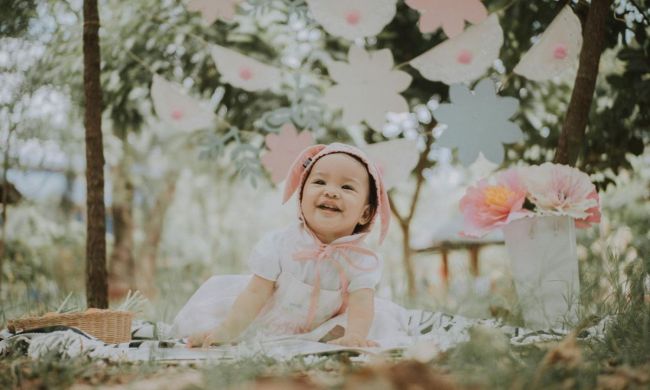Whether you have to go back to work or need some time to get things done around the house without constantly stopping to care for your baby, childcare is an option for parents to do what they need to. Looking for childcare for your family’s needs could be a stressful decision, no matter the reasons behind it. But it makes it even more challenging for parents when it’s for their infant who can’t tell you what they think about the care they receive. Here’s how to choose childcare for infants that will put parents at ease.
How to pick childcare for your infant

Finding proper childcare for an infant is hard. You are putting the care of an extremely vulnerable human in the hands of someone else. Your baby won’t be able to tell you if they were fed, cleaned up, ignored, or given the best care they’ve ever seen outside of being with you.
When to start looking
If you know you will be right back to work, you should start looking for childcare before you have the baby. Waitlists can be long at public institutions, so it’s best to get your name on one early. Plus, you will be so tired from having a newborn that you may forget to find one or not be mentally aware when asking questions of the potential provider.
How old baby should be
When your child starts daycare will be up to you. Know that there is a weird window from 7 to 12 months where babies have stranger danger that makes it hard to transition a new caregiver into their life. It doesn’t matter if you return to work at six weeks or six months — there will be a childcare option. Most facilities are licensed to take babies starting at six weeks.
Your budget
Money makes the world go round — and is a huge factor in the decision. What you can afford will narrow down your options. You need to decide if you go private, in-home, or find a daycare through a church or school. The costs vary across the board from state to state and from type to type, so get a quote from every possibility before deciding.
What your needs are
Are you looking for a full-time daycare or a place to watch your bundle of joy a few hours a day, a few times a week? Do you want a daycare open on the weekends? Do you work from home and need help? Do you have to work holidays? Not only will knowing this help with budgeting for childcare, but it will eliminate certain options.
What to know
No matter which option you go for, ask questions. Ask about their hours, closing procedures, the ratio of kids to adults, their holiday hours, if they offer financial assistance, staff qualifications to work there, pick-up and drop-off procedures, and what a typical day looks like. Answers to questions like these could make or break a childcare option.
Different types of childcare for an infant

The thing to consider that will affect everything else mentioned is going to be the type of childcare you pick. Figure out what your family wants from a daycare setting to pick the best option for your family and budget. Know the fees for an infant (no matter where you go) are higher than for an older child. Infants require more work and attention, and parents pay a premium.
Daycare
Find a daycare through a church, school, YMCA, or other public entity. These tend to be open longer hours and all year for parents who work full-time jobs, and will most likely be the most expensive option.
In-home daycare
If a larger daycare setting isn’t something you’d feel comfortable with, there are plenty of in-home daycares to consider. There will be fewer children for the caretakers to look after, but you have to be able to trust the person whose home you are leaving your child at.
Nanny
If you want to keep your child at home, a nanny who comes to you is a great option. They have flexible hours, so if you only need help for a few hours a day or at odd times here and there, it’s easier to have a nanny on hand. Depending on whether you hire someone through an agency or get a friend to recommend someone, the cost of a nanny will vary.
A relative or other mom friend
Not everyone has family close by. If you do, consider finding a relative to watch your child, especially if you only need something on a part-time basis. If you have a neighbor or friend with a child, work out a swap schedule to cover needed shifts.
This may be the first time someone other than yourself is watching your baby. The stress of leaving your infant in someone else’s care is a huge decision, but when you find that right match, it is such a relief to know you can get work done or take care of other things (like yourself) knowing your child will get the same attention as if they were home with you. Take your time, ask all the questions, and find the childcare for an infant that best suits your family’s needs. All parents need to start building their village, and it can start with your baby’s first additional caretaker.




